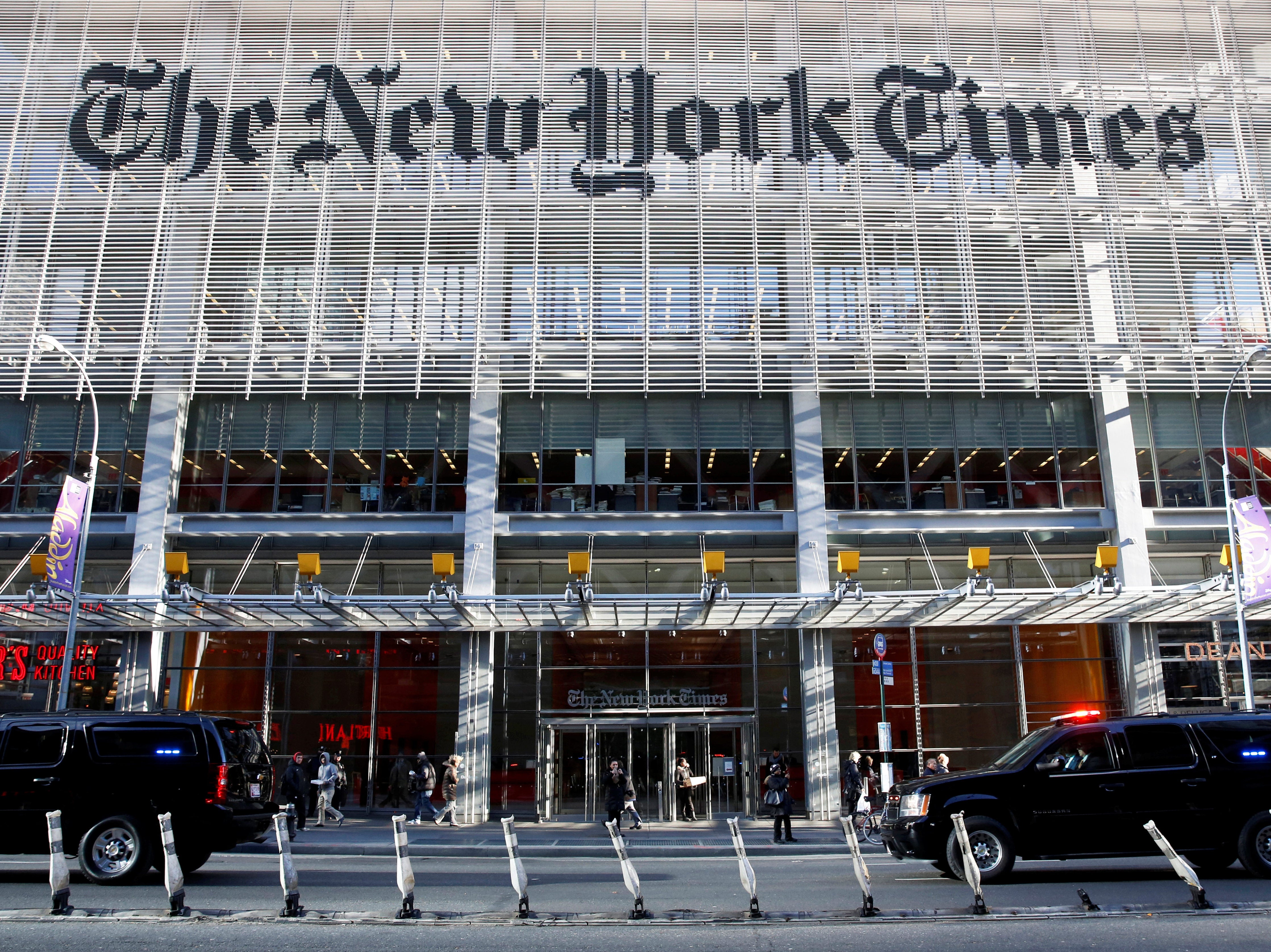
The New York Times has cut daily political cartoons from its international edition and ended contracts with two of its cartoonists.
The International New York Times, which appears on newsstands in the UK, announced the move yesterday. It comes two months after two syndicated cartoons that appeared in the paper were accused of being anti-Semitic.
One of the criticised cartoons depicted Israeli Prime Minister Benjamin Netanyahu as a dog leading a blind US President Donald Trump, who was shown wearing a Jewish Kippah on his head.
The New York Times admitted the image was “offensive” and said it had been “an error of judgement” to publish it (see tweet below). It went on to state that it had been “clearly anti-Semitic and indefensible”.
It decided to stop publishing syndicated cartoons in the international edition as a result.
An Editors' Note to appear in Monday’s international edition. pic.twitter.com/1rl2vXoTB3
— New York Times Opinion (@nytopinion) April 27, 2019
New York Times editorial page editor James Bennet said the international edition of the paper would no longer carry daily political cartoons.
He said: “For well over a year we have been considering bringing that edition into line with the domestic paper by ending daily political cartoons and will do so beginning 1 July.”
Cartoonists for the international edition, Patrick Chappatte and Heng Kim Song have been let go as a result of the move.
Bennet said the New York Times would “continue investing in forms of opinion journalism… that express nuance, complexity and strong voice from a diversity of viewpoints” across its platforms.
Writing about the cut to political cartoons on his personal website, cartoonist Patrick Chappatte criticised “moralistic mobs” on social media.
He said: “I’m putting down my pen, with a sigh: that’s a lot of years of work undone by a single cartoon – not even mine – that should never have run in the best newspaper of the world.
“I’m afraid this is not just about cartoons, but about journalism and opinion in general. We are in a world where moralistic mobs gather on social media and rise like a storm, falling upon newsrooms in an overwhelming blow.
“This requires immediate counter-measures by publishers, leaving no room for ponderation or meaningful discussions. Twitter is a place for furor, not debate. The most outraged voices tend to define the conversation, and the angry crowd follows in.”
He later added that political cartoons were “needed more than ever”.
The New York Times won the Pulitzer Prize for political cartoons last year for a series that told the story of a Syrian family’s travels to America.
Picture: Reuters/Shannon Stapleton
Email pged@pressgazette.co.uk to point out mistakes, provide story tips or send in a letter for publication on our "Letters Page" blog

